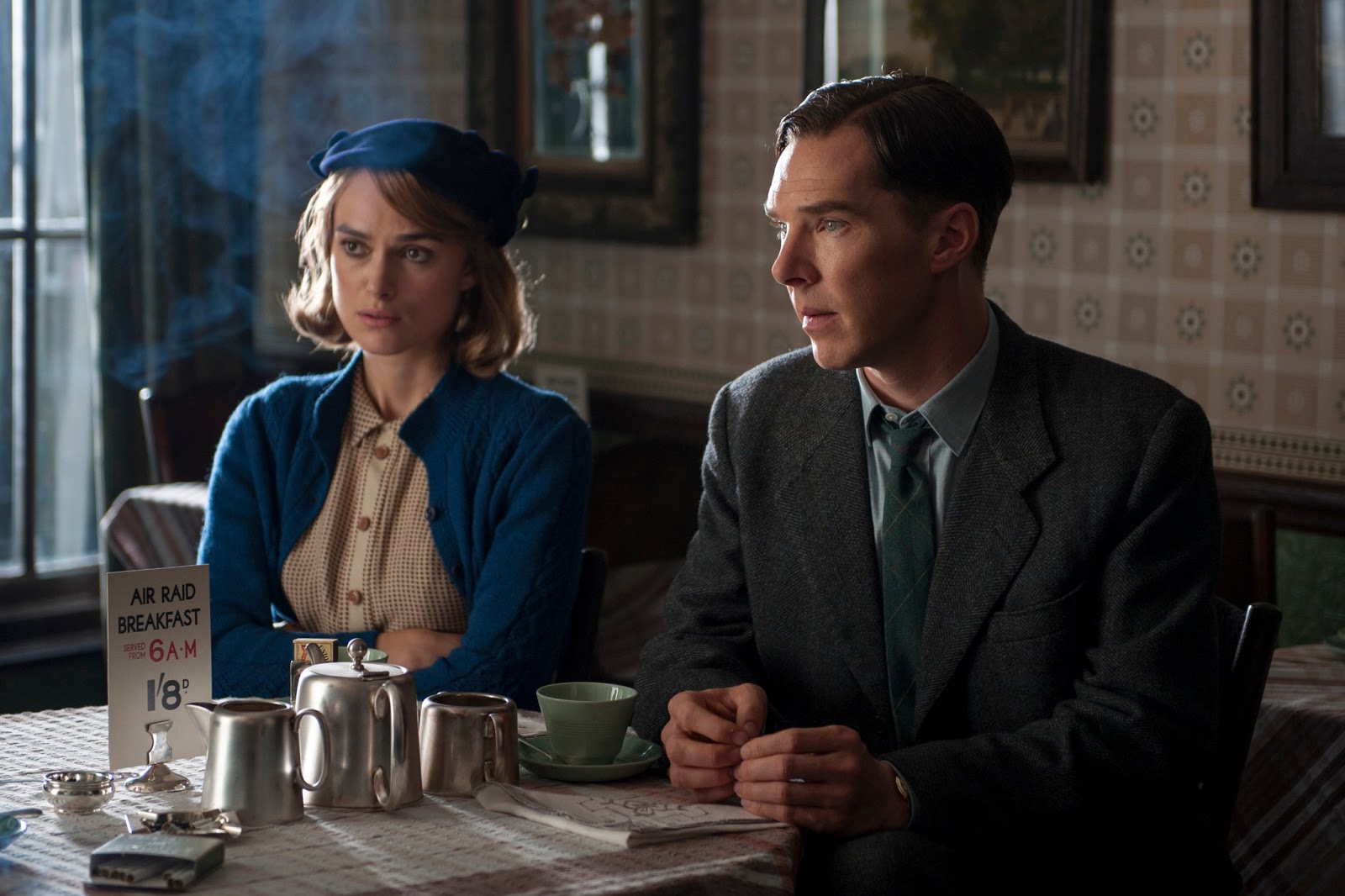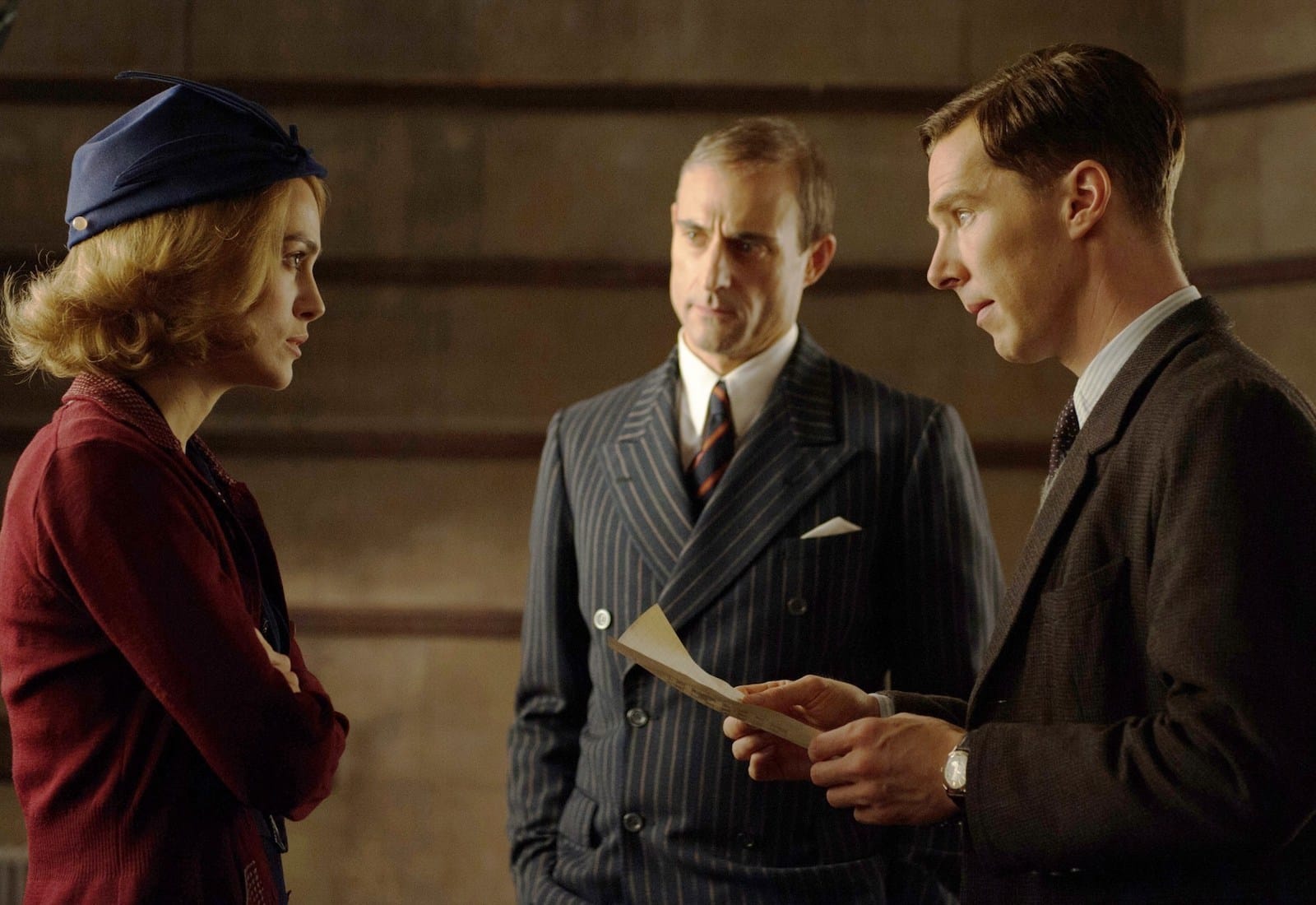🎬 The Imitation Game (2014)

🎬 The Imitation Game (2014) – A Brilliant Mind Against Time and War
Released in 2014, The Imitation Game is a powerful historical drama directed by Morten Tyldum and based on the biography Alan Turing: The Enigma by Andrew Hodges. The film stars Benedict Cumberbatch in a career-defining role as Alan Turing, alongside Keira Knightley, Matthew Goode, Mark Strong, and Charles Dance.
Plot Overview

Set during the darkest days of World War II, the film tells the extraordinary true story of Alan Turing, a mathematical genius whose work would not only help win the war but also lay the foundations of modern computing.
At the heart of the story is Britain’s desperate attempt to break Enigma, the supposedly unbreakable code used by Nazi Germany to encrypt military communications. Turing, an eccentric and socially awkward mathematician, joins a team of brilliant codebreakers at Bletchley Park. While his unconventional methods and abrasive personality cause friction with colleagues and superiors, Turing’s vision leads him to design a groundbreaking machine—an early form of the modern computer—that could process and test countless code possibilities at lightning speed.
After facing skepticism, political pressure, and personal struggles, Turing’s persistence pays off. His machine successfully cracks Enigma, shortening the war by years and saving millions of lives.
Yet, the story is more than just a wartime triumph. The film also sheds light on Turing’s personal life. Despite his monumental achievements, Turing was prosecuted in 1952 for homosexuality—considered a crime in Britain at the time. This tragic injustice ultimately led to his downfall, leaving behind a legacy both heroic and heartbreaking.
Themes and Messages

The Imitation Game is more than a war film; it is a story of brilliance, secrecy, and sacrifice. Several themes stand out:
-
The Power of Intelligence: Instead of weapons or brute force, victory in this story comes from intellect, logic, and determination.
-
Individual vs. Society: Turing’s genius is recognized too late, and societal prejudice overshadows his contributions.
-
Identity and Acceptance: Turing’s struggle with his sexuality reflects broader questions of identity and human dignity.
The title itself—The Imitation Game—refers to Turing’s famous test, later known as the Turing Test, which explored the nature of artificial intelligence and the ability of machines to “think.”
Performances and Recognition
Benedict Cumberbatch delivers a deeply moving performance, portraying Turing as both brilliant and vulnerable. Keira Knightley as Joan Clarke, a fellow cryptanalyst and one of the few who truly understands Turing, adds emotional depth to the film.
The movie received eight Academy Award nominations, including Best Picture, Best Director, and Best Actor for Cumberbatch. It won the Oscar for Best Adapted Screenplay, cementing its place as one of the most acclaimed films of the decade.
Legacy

Today, The Imitation Game not only honors Turing’s contributions to modern computing and artificial intelligence but also serves as a reminder of the dangers of intolerance and prejudice. Alan Turing’s story resonates as both a historical triumph and a human tragedy, ensuring that his name will never be forgotten.
Related movies :











